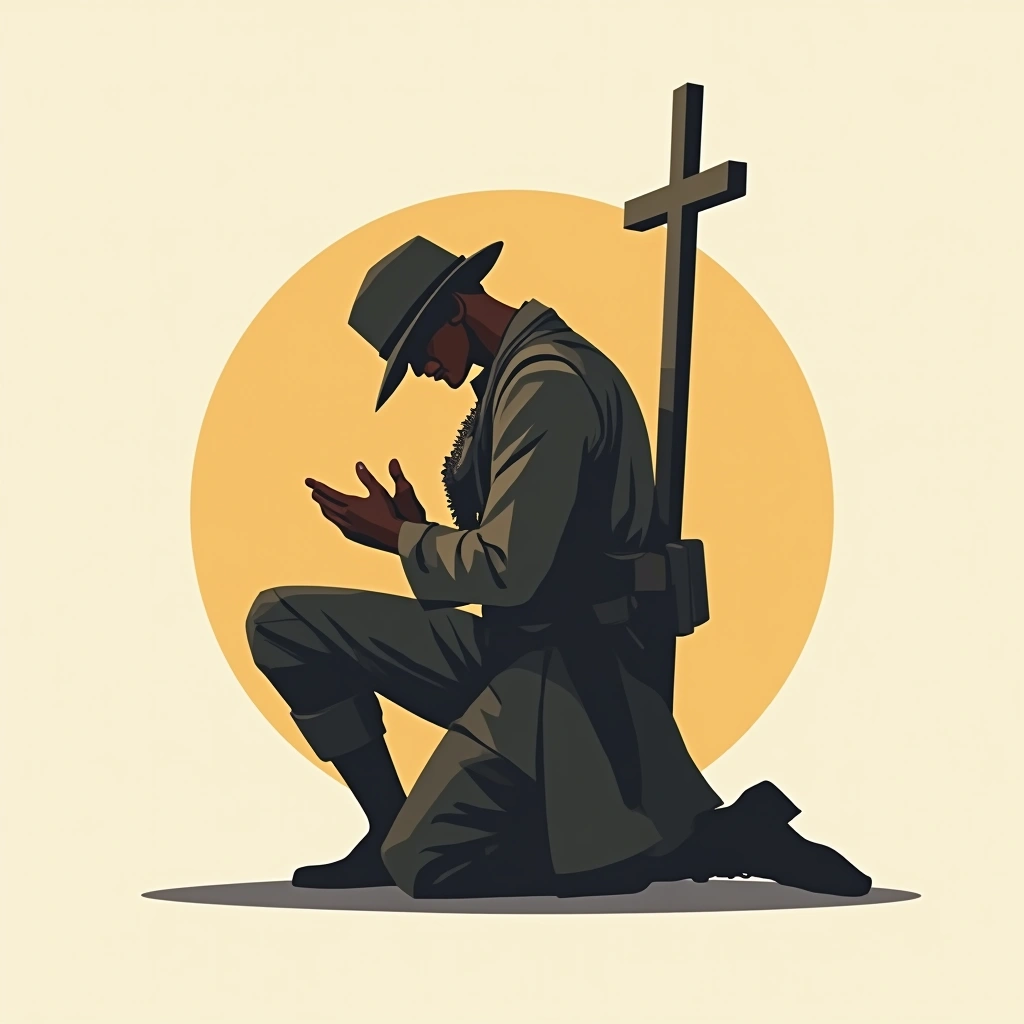Joan of Arc Habits - Divine Guidance and Battlefield Bravery
Joan of Arc's Habits
Joan of Arc stands as a figure of unparalleled courage and conviction. Her life, though tragically short, was marked by a set of uncommon habits that fueled her extraordinary mission. These habits, deeply rooted in her spiritual beliefs, were not just personal practices but the very foundation of her strength and leadership.
From seeking divine guidance through constant prayer to leading troops fearlessly on the battlefield, Joan's actions were driven by a profound sense of purpose. Her commitment to moral discipline, practical attire, and unwavering faith in her mission, even in the face of immense pressure, showcases a remarkable blend of piety and pragmatism. These habits were instrumental in transforming her from a peasant girl into a legendary military leader and a symbol of French resistance.
- Unwavering Faith and Divine Guidance
- Disciplined Moral Code and Purity
- Practicality and Battlefield Focus
- Courageous and Direct Leadership
- Unshakeable Conviction and Self-Belief
Delving into Joan of Arc's habits reveals the essence of her indomitable spirit and the source of her transformative power.
Filter Habits
 Joan Of Arc's Habit Sets
Joan Of Arc's Habit Sets

Daily prayer and divine consultation
Engaged in frequent prayer sessions to seek guidance from spiritual voices she believed to be saints. Maintained this practice even during military campaigns and imprisonment.
Why This Matters
Joan of Arc attributed her strategic decisions and sense of purpose to direct communication with divine figures like Saint Michael. This habit formed the foundation of her unshakable confidence in her mission to liberate France.

Enforcing moral discipline
Prohibited swearing and required soldiers to regularly confess sins. Personally intervened to remove camp followers from military encampments.
Why This Matters
Joan sought to maintain spiritual purity within her forces, believing morality directly impacted military success. This habit reflected her fusion of religious devotion with tactical leadership.

Wearing male military attire
Consistently wore practical soldiers' clothing and armor despite gender norms. Maintained this practice even when pressured by ecclesiastical authorities.
Why This Matters
Joan adopted male dress both for battlefield practicality and as symbolic rejection of traditional gender roles. She defended it as divine instruction essential to her mission's success.

Direct battlefield leadership
Personally led charges and remained at the front lines during sieges. Continued fighting after sustaining arrow wounds during key engagements.
Why This Matters
Joan believed her physical presence inspired troops and demonstrated divine favor. This habit helped transform French morale during the Hundred Years' War.

Maintaining chastity vow
Publicly committed to lifelong virginity through formal vow. Rejected marriage proposals and romantic entanglements consistently.
Why This Matters
Joan viewed celibacy as necessary for maintaining spiritual authority and focus on military goals. This habit helped counter accusations of impropriety in male-dominated spaces.

Using symbolic religious imagery
Commissioned battle standards featuring Christ imagery and fleur-de-lis motifs. Carried personal banner into combat situations.
Why This Matters
Joan employed visual symbols to reinforce divine sanction for her mission. These artifacts served as psychological weapons and rallying points for troops.

Persistent royal advocacy
Repeatedly petitioned skeptical authorities for military command. Revealed knowledge of Charles VII's private prayers to establish credibility.
Why This Matters
Joan needed royal endorsement to pursue her liberation campaign. This habit demonstrated her political acumen and understanding of power dynamics.

Agricultural work ethic
Maintained farming skills through haymaking and shepherding. Continued manual labor even after gaining prominence.
Why This Matters
Joan's peasant upbringing instilled practical work habits that informed her leadership style. This habit kept her connected to common soldiers and citizens.

Theological self-defense
Consistently cited divine mandate when challenged by clergy. Framed unconventional actions as obedience to higher authority.
Why This Matters
Joan needed to counter heresy accusations while maintaining revolutionary practices. This habit preserved her mission's legitimacy during prolonged interrogations.

Practical hairstyle maintenance
Kept hair cropped short for helmet compatibility and hygiene. Rejected feminine hairstyles despite cultural expectations.
Why This Matters
Joan prioritized battlefield functionality over gender presentation norms. This habit physically manifested her transformation into military leader.

Continuous armor wear
Remained fully armored during campaigns for rapid response capability. Slept in protective gear during siege operations.
Why This Matters
Joan's constant readiness reflected the precarious military situation and personal vulnerability as high-profile target.
Strategic letter writing
Dictated defiant messages to English commanders before engagements. Used written communication to establish psychological advantage.
Why This Matters
Joan understood the propaganda value of written challenges. This habit complemented her battlefield successes with information warfare.

Church attendance prioritization
Attended mass daily when possible. Spent childhood years developing deep familiarity with religious spaces.
Why This Matters
Joan's spiritual practices grounded her extraordinary claims in recognizable piety. This habit helped maintain troops' perception of her legitimacy.

Visionary experience documentation
Consistently described spiritual encounters using specific details. Maintained identical narrative through repeated interrogations.
Why This Matters
Joan needed to validate her divine mandate through consistent testimony. This habit helped her withstand intense ecclesiastical scrutiny.

Tactical retreat acceptance
Ordered strategic withdrawals when situations became untenable. Maintained discipline during withdrawals to preserve forces.
Why This Matters
Joan balanced religious zeal with practical military judgment. This habit prevented catastrophic losses despite eventual capture.
Key Takeaways
Joan of Arc's habits offer profound lessons that resonate even today. Examining these practices provides valuable insights into cultivating inner strength, unwavering focus, and impactful leadership in any field.
- Spiritual Grounding: Joan's daily prayer and divine consultation highlight the power of connecting with a deeper sense of purpose and seeking guidance beyond the material world. This emphasizes the importance of inner reflection and faith in navigating life's challenges.
- Moral Integrity: Her insistence on moral discipline within her ranks underscores the impact of ethical conduct on achieving collective goals. Maintaining high standards and promoting integrity can foster trust and enhance performance.
- Practicality and Focus: Joan's choice of attire, hairstyle, and continuous armor wear demonstrate the value of prioritizing functionality and readiness. Eliminating distractions and focusing on essential actions can maximize efficiency and effectiveness.
- Courageous Action: Her direct battlefield leadership and persistent advocacy reveal the power of leading by example and taking decisive action. Stepping forward with courage and conviction can inspire others and drive meaningful change.
- Unwavering Self-Belief: Joan's theological self-defense and consistent narrative highlight the importance of unwavering self-belief and clear communication of one's vision. Maintaining conviction in the face of doubt and articulating your purpose effectively are crucial for overcoming obstacles.
Embrace the spirit of Joan of Arc by cultivating habits that nurture your inner strength, guide your actions, and empower you to pursue your purpose with unwavering conviction.
